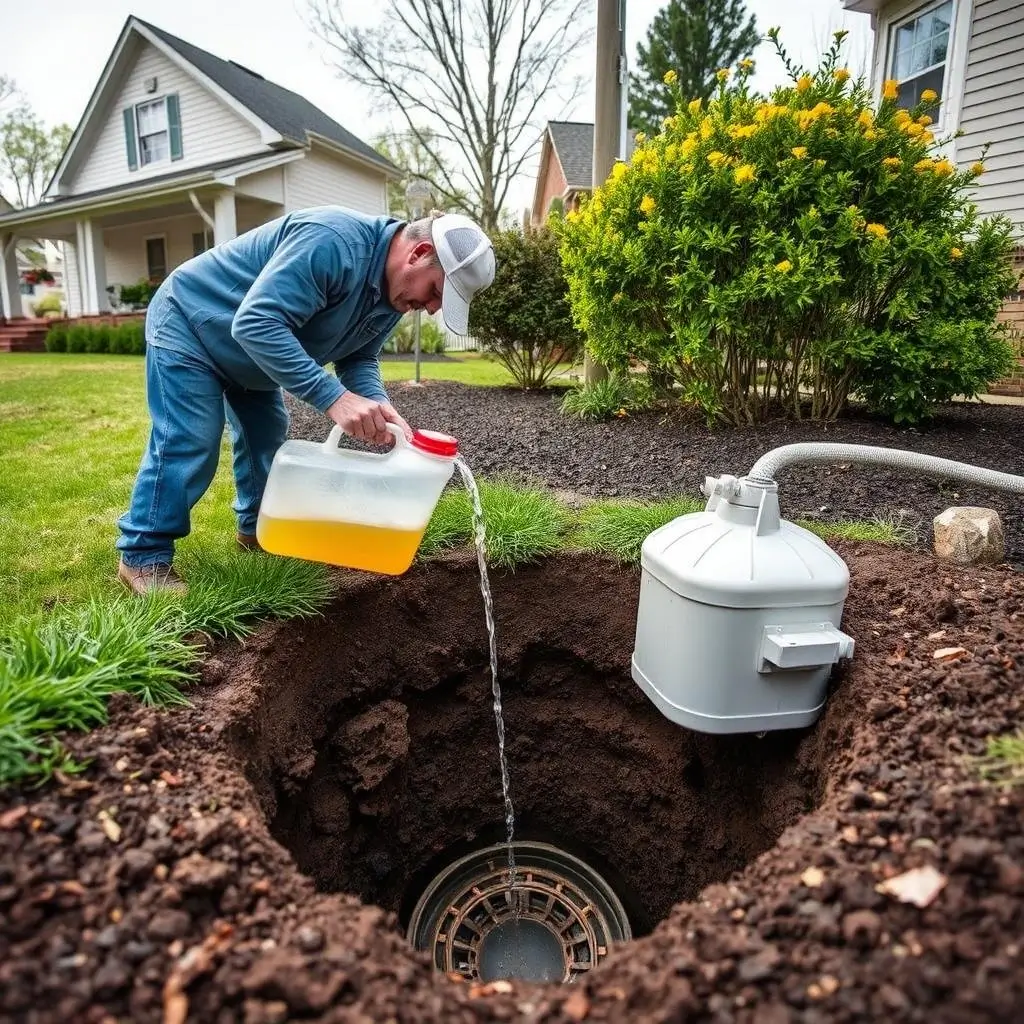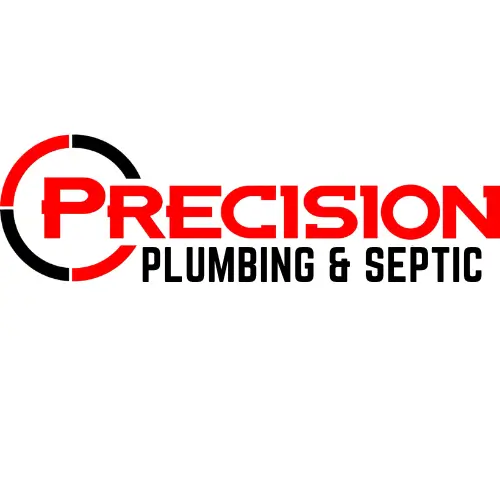What Are Septic Chemical Treatments?
Septic chemical treatments are products designed to enhance the performance of your septic system. They introduce helpful bacteria, enzymes, or chemicals that break down organic waste, reduce odors, and improve wastewater absorption in the drain field. Using these treatments regularly ensures your system works efficiently and helps prevent serious issues like backups or clogs.
These treatments are particularly useful for systems under heavy use, homes with garbage disposals, or older tanks that need extra care to maintain efficiency.
Types of Septic Chemical Treatments
1. Bacteria and Enzyme Treatments
These products replenish the helpful bacteria that naturally break down waste inside the septic tank. Over time, household chemicals like bleach, antibacterial soaps, and detergents can disrupt these bacteria, leading to waste buildup.
How They Help: Promote efficient waste breakdown and prevent sludge buildup.
Best for: Regular monthly use to maintain balance in the tank.
2. Shock Treatments for Clogged Systems
When a septic system becomes overloaded or clogged, a shock treatment with concentrated enzymes can restore functionality. These treatments target organic blockages in the pipes and drain field, improving flow without the need for excavation.
How They Help: Clear clogs and restore the drain field's absorption capacity.
Best for: Systems showing early signs of failure, such as slow drains or standing water.
3. Root Killers
Roots from nearby trees or shrubs can invade your septic pipes and cause damage. Root killer treatments target the roots directly, preventing further growth and keeping your system safe.
How They Help: Stop root intrusion and protect underground pipes.
Best for: Properties with trees or shrubs planted near the septic system.
4. Odor Control Additives
Bad smells around your septic tank or drain field can indicate a problem. Odor control additives neutralize unpleasant smells and reduce the presence of gases like hydrogen sulfide.
How They Help: Eliminate foul odors inside and outside your home.
Best for: Use as needed to address odor issues.
When Should You Use Septic Chemical Treatments?
Incorporating chemical treatments into your septic maintenance routine is essential for long-term system health. Here’s a quick guide to when and how often to use these treatments:
Monthly Treatments: Use bacteria or enzyme treatments every month to maintain a healthy bacterial balance.
Seasonal Shock Treatments: Apply a shock treatment in spring and fall to clear out any organic buildup.
After Pumping: Add bacteria treatments after pumping to replenish helpful bacteria.
Before or After Heavy Use: Use enzyme treatments after holidays, gatherings, or extended guest stays to handle increased waste.
Benefits of Septic Chemical Treatments
1. Extend the Life of Your Septic System
Routine chemical treatments reduce the risk of clogs and sludge buildup, helping your system run efficiently for years. This proactive approach can extend the lifespan of your septic tank and drain field.
2. Prevent Costly Repairs
By keeping pipes and the drain field clear, treatments help you avoid expensive repairs or replacements. For instance, using shock treatments regularly can restore an overloaded drain field without excavation.
Pro Tip: Regular treatments can save you thousands by preventing drain field replacement.
3. Improve System Efficiency
Healthy bacteria ensure that waste is properly broken down and that liquids are absorbed efficiently by the drain field. Enzyme treatments enhance this process, keeping your system running smoothly.
Warning Signs That Your System Needs Chemical Treatments
Even with routine pumping and maintenance, some signs indicate that your system could benefit from chemical treatments:
Slow Drains: A common sign of organic buildup in the pipes or tank.
Foul Odors: Smells near your drains or yard may indicate bacterial imbalance.
Standing Water in the Yard: Pooling water suggests the drain field isn’t absorbing waste properly.
Lush, Green Grass Over the Drain Field: Excess nutrients in the soil could mean the system isn’t filtering properly.
If you notice any of these signs, it’s time to apply a chemical treatment or contact a professional for an inspection.
The Cost-Effectiveness of Septic Treatments
Septic chemicals are an affordable way to keep your system in top condition. While each product varies in price, most treatments cost between $1,000 and $1,800 —a small investment compared to the thousands of dollars you might spend on repairs or replacements.
Using shock treatments regularly can also delay or prevent the need for expensive drain field repairs, giving you peace of mind that your system will last for years to come.
How to Choose the Right Septic Chemical Treatment
Choosing the right chemical treatment depends on the current state of your system and your long-term maintenance goals. Here are a few tips:
For Routine Care: Choose monthly bacteria or enzyme treatments.
For Clogs or Overloads: Use a shock treatment to restore proper flow.
For Properties with Trees: Opt for root-killing treatments to protect your pipes.
For Odor Issues: Keep odor control additives on hand for quick fixes.
If you’re not sure which treatment is right for your system, our team can help you choose the best product based on your needs.
Protect Your System with Professional Help
While chemical treatments are a great tool for maintaining your septic system, they work best when combined with regular pumping, inspections, and repairs. Our expert team is here to help you create a customized maintenance plan that fits your needs.
Schedule Your Septic Service Today
Keep your septic system in top shape with routine chemical treatments and professional maintenance. Whether you need help choosing the right products or want to schedule an inspection, our team is here for you. Contact us today to learn more about our services and keep your system running smoothly.

